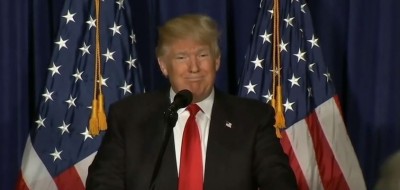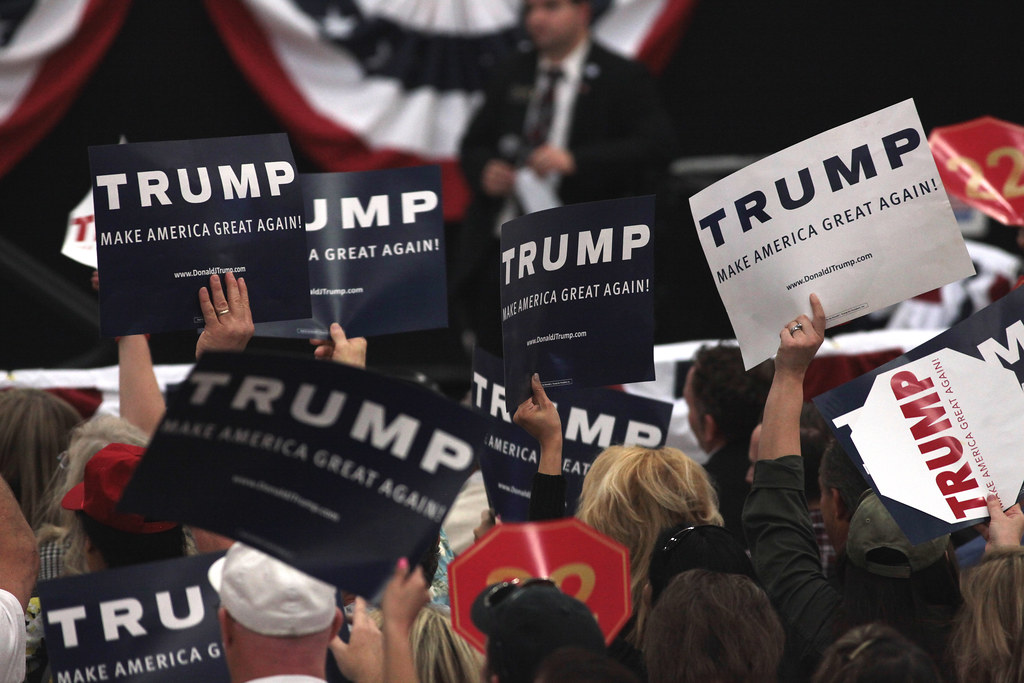US Election Campaign: The Trump Train Chugs into Indiana

No rivals left in the race. This was the effect of Donald Trump’s victory in the GOP primary in Indiana, which netted him 57 delegates and sunk the aspirations of two near irrelevant contenders. It had been one of the most savagely negative campaigns, characterized by tens of thousands of “attack ads” directed against a person who has effectively become the presumptive Republican nominee for President.
After huffing about country and drawing God out more than He would ever care for, the vampiric Ted Cruz conceded that he would be suspending his campaign. Not even his courting of the evangelical vote had worked.
A glimpse of his mind, if ever such speeches can yield any insight, would have suggested God and cruise missiles, the continued nonsense about the US as an exceptional power that needs to rub noses in the dirt of history and bully its way to glory. When having to inflict indecencies on the international stage, always call yourself indispensable.
Ohio governor John Kasich joined Cruz in the exit ceremony, and being similarly short of ideas about why he had reached such an impasse, called on that good figure in the sky. “As I suspend my campaign today I have renewed faith, deeper faith that the Lord will show me the way forward.”
This repeated insistence on drawing out the services of a divine absentee land lord over the tenancy of life has been a striking feature of the Republican contenders, an aspect of which has been side-stepped by the Trump show. Earthly realities, even if they seem to be mediated through the fogged up lenses of television and re-runs of The Apprentice, seem to be of greater interest there.
In New York, Trump appeared at the podium, flanked by the usual female bodyguard of model wife and model progeny, and stuck to the formula that sees him as the likely main candidate for the GOP.
The mixture of populist aspiration and gibberish followed, though what is always refreshing about Trump is a near de-secularised notion of American faith. The only divinity he ever saw was no doubt in the mirror, and such attitude shows.
In a call reminiscent of the seductive luring of Ronald Reagan Democrats during the 1980s, he suggested that the miners of West Virginia and Pennsylvania would be looked after. This is a point he has reiterated through his campaign: bring back American steel and coal, and stick it to those powers indifferent to US interests. “I’m a free-market guy, but not when you’re getting killed,” he claimed before rally-goers in Carmel, Indiana. “Look at steel, it’s being wiped out. Your coal industry is wiped out, and China is taking our coal.”[1]
This is all fanciful stuff, given that coal, and its miners, is very unlikely to come back. In the words of Nobel prize-winning economist Paul Krugman, “The real war on coal, or at the least on coal workers, took place a generation ago, waged not by liberal environmentalists but by the coal industry itself. And coal workers lost.”[2]
Trump rubbished the Clinton legacy around free-trade and its maniacal push for offshoring jobs and keeping costs down, despite being himself a beneficiary of an America that prides itself on keeping wages low.
Then came half-sensible remarks about US infrastructure, which resemble, he argues a “Third World country”. Such tags are always deceptive, but the Republic has been fraying, and greying, at the edges for some time. The problematic nature of Trump-speech is its hazardous whirl, from sensible utterance to moronic plunge. Noting how US airports need to be improved relative to international counterparts, he was happy to suggest that investment in the military needed to increase dramatically. Good militaries, in this dreamed up logic, make good economies.
The Republican movement has become dizzyingly desperate in how to evaluate the Trump phenomenon. Some insist on fighting him to the bitter end, or at the very least to the convention itself. The Never Trump Pac, created to specifically make sure Trump does not appropriate the Republican Party, continues to be noisy through the views of such figures as senior advisor Rory Cooper.[3]

GOP Chairman Reince Priebus is not of same mind. “We all need to unite and focus on defeating Hillary Clinton,” he tweeted. Having attempted, in the weirdly inane world of Twitter-speak, to hashtag Trump into electoral oblivion, Priebus weakly turned it to a hashtag against Clinton (#NeverClinton).[4]
The yay sayers are growing in number. Former Utah Governor Jon Huntsman, boxed as suitably moderate, decided that that Trump was his man. The response from Reagan advisor Bruce Bartlett was swift and brutal. “Alleged wanker moderate Jon Huntsman throws in with Trump. Pathetic.”
Louisiana Governor Bobby Jindal insists that the GOP stop being the “stupid party”, a Herculean task at best. Arizona Senator John McCain, despite having been mocked by Trump over his past as a prisoner who was tortured, has decided to become a ticket holder on the Trump train.
The point of Trump’s current lead is that any move at the convention against him will be seen as disastrous. On the other hand, the GOP machine men and women will be wondering if going with Trump will also come with its own destructive promise, a suicide pact that will banish the party into the wilderness. The chalice is being readied.
Dr. Binoy Kampmark was a Commonwealth Scholar at Selwyn College, Cambridge. He lectures at RMIT University, Melbourne. Email: [email protected]
Notes

